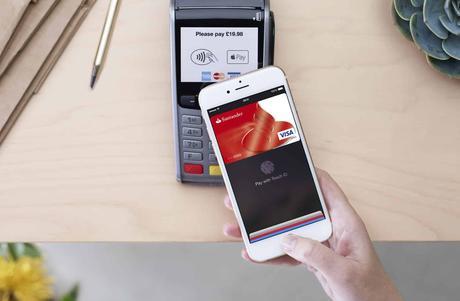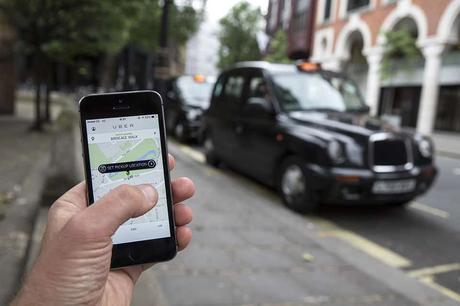[notice icon=’bullhorn’ color=’#3498db’]This article was originally posted on Boagworld by Paul Boag.[/notice]
Users will always choose the easiest option, so if we want a competitive advantage we must focus on simplicity.
Don’t check your feeds as much as you should? Signup to my bi-weekly newsletter instead.
I don’t mean to be rude, but you are lazy! But don’t feel too bad, so am I. In fact we all are. It is one of the defining characteristics of being human. Our relentless march to ever more advanced technology is largely driven by our inherent laziness. We are always looking for new ways to do things faster and with less effort.
Of course marketers have known about this characteristic of human behavior for generations. That is why your bank can get away with such poor service. They know that we are too lazy to move because it is too much work. It is also why gym memberships automatically renew. They know that we will never quite get around to cancelling them.
People don’t care about your app or website
Yet despite this being a well-known human characteristic it is something that many of us ignore in the digital field. This is all the more ironic considering we call ourselves experts in human behavior. You see many of us are under the delusion that people want to use our apps or websites.
People don’t care about using your app or website. They only care about the result it delivers.
The truth is people have no interest in using applications or websites. They are tools for a goal. They want to use your website or application for the smallest amount of time. Just enough to achieve the result that they are looking for.
People don’t use Facebook for the user interface. They use it to keep in touch with their friends. They don’t visit your website to see your gorgeous branding or engaging video. They just want to get the information they need and get out.
Google get this. They are relentless in their aim of getting you off the Google search site as soon as possible. Yet they are an exception.
Take for example BMW. They have had the genius idea of launching an app that will allow you to unlock your car. How cool is that? I mean, keys are so 1999.
But lets just think about that for a moment. To unlock my car with an app involves a lot more steps than using a key. I have to:
- Take the phone out of my pocket.
- Turn the screen on.
- Slide to unlock.
- Flip through my screens until I find the BMW app.
- Launch the BMW app.
- Find the function to unlock the car.
- Press the unlock function.
It is just easier to use my keys. Its not like I can get rid of my keyring. They have my house keys on too.
You see that is the key (no pun intended). We always do what is easiest. If it is easier to use your website than the competition we will no matter how great their branding. The only thing that can compete with ease is price and that is not always the case.
This is why Apple Pay will never become mainstream in the UK. Every British person already has a credit or debit card that allows us to pay with contactless. The Apple Pay experience is good. But it is still hard compared to pressing a credit card against a terminal. Sure, Apple Pay would be great if it meant I didn’t have to carry my credit card. But that won’t happen because Apple Pay will never be as ubiquitous as cards.

Apple Pay will never become mainstream in the UK because it is not easier than contactless payment.
We under estimate the potential of making things easy. Organisations hire me to help them create a better user experience. They talk to me about brand values and delighting their customers. In their minds it is these things that make a great experience. But when I start talking about ease of use they just stare at me.
Ease of use is a huge competitive advantage
Yet creating an easier experience for people can be all the differentiation you need. Take for example Uber. Uber doesn’t have the most amazing branding. It hasn’t spent millions on advertising. Yet they have revolutionised taxi travel. They have redefined a sector.
The reason for their success is simple – they create a frictionless experience. No struggling to hail a cab, find the right money, calculate a tip, ask for receipts or worry the driver is ripping you off. Uber deal with it all and more. You just press a button, get in the cab and get out at your destination. Easy!

Uber has disrupted an entire sector by simply offering a more frictionless experience.
But they aren’t unique. Google supplanted Yahoo! for the same reason. Netflix replaced Blockbusters, iTunes destroyed high street music retail. In every case the reason was that the experience was just simpler. Simpler to download the songs you want rather than go to the high street and buy a whole album. Simpler to stream the film you liked, rather than collect physical disks from a store.
I am blown away by how people seem to miss the importance of simplicity and ease of use. One minute a client can be sharing their frustrations with their banking app. The next they add more complexity to their own products in an attempt to make it ‘more engaging’.
I have put a lot of thought into why this is. The answer is obvious when you think about it. We have a disproportionate view of our own offering.
Users don’t care about what you offer as much as you do
Let us say for a moment you are selling insurance. You are an expert in insurance. You think about insurance five days a week for eight hours a day. To you insurance matters. But to anybody else it is just another thing on their todo list.
Of course after reading the above paragraph you will be nodding in agreement. Nobody cares about insurance. But now substitute what you do. The same applies.
Nobody cares about your product or service like you do. To them it is just a task on a todo list.
I don’t even care if you work at a charity or are selling people a huge life changing product like a place at University. The same is true. The interaction the user is having with you is just one small, insignificant part of their life. They just want to get it sorted and move on.
Take for example charitable giving. Sure giving to charity matters. The fact that I am giving shows I care. But for most of us it is just a passing response to something which has moved us.
As for picking a life changing product such as going to University. Well there are so many options out there. So many places I could go. I am reviewing many, many, options. I cannot give that much attention to each. At least not until I have narrowed the field.
Seriously! I cannot overstate this. Nobody cares as much about your products and services like you. Instead of wasting time trying to make your audience care, start investing in making their experience easy. Instead of trying to maximise your engagement with users, minimise it! Focus on minimising your impact on the users day. Start thinking of yourself as a utility, rather than a destination. It will transform your digital experience for the better.
Don’t check your feeds as much as you should? Signup to my bi-weekly newsletter instead.
Original SEO Content by SEO Andy @ Users always choose the path of least resistance

